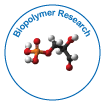Notre groupe organise plus de 3 000 séries de conférences Événements chaque année aux États-Unis, en Europe et en Europe. Asie avec le soutien de 1 000 autres Sociétés scientifiques et publie plus de 700 Open Access Revues qui contiennent plus de 50 000 personnalités éminentes, des scientifiques réputés en tant que membres du comité de rédaction.
Les revues en libre accès gagnent plus de lecteurs et de citations
700 revues et 15 000 000 de lecteurs Chaque revue attire plus de 25 000 lecteurs
Indexé dans
- Publons
Liens utiles
Revues en libre accès
Partager cette page
Abstrait
Development and use of genus Bacteroides 16S rRNA enzyme Chain Reaction Assay for supply trailing Dog fecal Pollution in Bathing Waters
Khwam R. Hussein, Paul L. Waines, Raid B. Nisr, Gillian Glegg and Graham Bradley
Faecal pollution on bathing beaches poses a possible threat to human health and as a result can also negatively have an effect on the native economy. In instances wherever the supply of such pollution isn't obvious, it's going to be necessary to trace such sources employing a host-specific genetic markers technique. genus Bacteroides species area unit potential indicators for supply trailing of fecal pollution in bathing waters. This study designed specific primer sets to amplify sections of the 16S rRNA cistron distinctive to genus Bacteroides from doggies and used quantitative PCR (qPCR) to quantify such genetic markers in environmental samples. The sensitivity and specificity of the primer sets was determined; they were specific in silico against legendary dog {bacteroides|Bacteroides|genus genus Bacteroides|bacteria genus} sequences and in vitro against Bacteroides sequences originating from human and farm animal excretion. Dog fecal genus Bacteroides contamination was then detected in ocean water throughout the washing season at {a local|an area unita|a neighborhood} beach wherever dogs are prohibited throughout the summer months, in spite of the actual fact that these waters had met EU directive standards supported the culture-based enumeration of fecal indicator microorganism. Quantitative PCR was wont to confirm the limit of detection (LOD) of the dog genus Bacteroides genetic markers in these water samples. The copy range of dog genus Bacteroides genetic markers within the water was low and therefore the LOD of these markers was four copies per reaction. the employment of those dog primers has the potential to provide vital further info once supply trailing fecal pollution at bathing beaches and maintaining water quality.
Revues par sujet
- Agriculture et Aquaculture
- Biochimie
- Chimie
- Food & Nutrition
- Génétique et biologie moléculaire
- Géologie et sciences de la Terre
- Immunologie et microbiologie
- Ingénierie
- La science des matériaux
- Le physique
- Science générale
- Sciences cliniques
- Sciences environnementales
- Sciences médicales
- Sciences pharmaceutiques
- Sciences sociales et politiques
- Sciences vétérinaires
- Soins infirmiers et soins de santé
Revues cliniques et médicales
- Allaitement
- Anesthésiologie
- Biologie moléculaire
- Cardiologie
- Chirurgie
- Dentisterie
- Dermatologie
- Diabète et endocrinologie
- Gastro-entérologie
- Immunologie
- La génétique
- Maladies infectieuses
- Médecine
- Microbiologie
- Neurologie
- Oncologie
- Ophtalmologie
- Pédiatrie
- Recherche clinique
- Soins de santé
- Toxicologie

 English
English  Spanish
Spanish  Chinese
Chinese  Russian
Russian  German
German  Japanese
Japanese  Portuguese
Portuguese  Hindi
Hindi